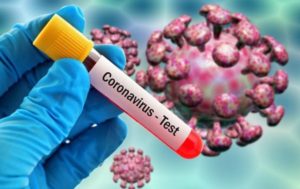Five MMDAs launch COVID-19 Recovery Plans and Integrated Assembly financing frameworks
 The National Development Planning Commission (NDPC) and the Ministry of Finance in partnership with the United Nations Development Programme (UNDP), have supported five Metropolitan, Municipal and Districts Assemblies (MMDAs) to launch COVID-19 Recovery Plans.
The National Development Planning Commission (NDPC) and the Ministry of Finance in partnership with the United Nations Development Programme (UNDP), have supported five Metropolitan, Municipal and Districts Assemblies (MMDAs) to launch COVID-19 Recovery Plans.
A statement issued by the NDPC, copied to the Ghana News Agency, said the COVID-19 Recovery Plans and Integrated Assembly Financing Frameworks would enable the MMDAs recover from the impact of COVID-19 and build resilience against local and external shocks.
The Assemblies are; Kumasi Metropolitan Assembly, Sagnarigu Municipal Assembly, Ketu South Municipal Assembly, Sefwi Wiawso Municipal Assembly and Kassena Nankana West District Assembly, in Ashanti, Northern, Volta, Western North and Upper East regions, respectively.
The statement said the development of the COVID-19 Recovery Plans and the Integrated Assembly Financing Frameworks fell in line with the objectives of the Ghana COVID-19 Alleviation and Revitalization of Enterprises Support (Ghana CARES) programme.
It said the Ghana CARES Programme was government’s GHC100 billion comprehensive programme to mitigate the impact of the COVID-19 pandemic and return the country to a sustained path of robust growth.
“Our response to COVID-19 is a strategic one using the case of the most affected to leverage ideas to respond to national challenge. We have also placed the COVID-19 plans as part of the sustainable endeavour created by the Ghana CARES (Obaatanpa) programme,” Dr Kodjo Esseim Mensah-Abrampa, Director-General, NDPC, said.
“Indeed, the path created by this initiative is to ensure that we leave no one behind in the journey towards creating opportunities and prosperity for all Ghanaians.”
The statement said the Integrated Assembly Financing Frameworks (IAFFs) provided concrete measures for mobilising the financing required to achieve the ambitious Sustainable Development Goals (SDGs).
It said the frameworks’ strategies comprised consolidating existing revenues, philanthropic financing, diaspora financing and private-public-partnerships.
The statement said the bottom-up approach to delivering the Integrated National Financing Frameworks targeted directly citizens at the local level of governance and puts SDGs at the heart of local government financing.
“UNDP and the UN System in Ghana are committed to bringing collective resources and expertise to support Ghana’s efforts towards SDG attainment at all levels. With thanks to the UN Joint SDG Fund and contributing partners, we are helping to accelerate SDG progress and COVID-19 recovery through integrated national financing frameworks”, Dr Angela Lusigi, UNDP Resident Representative in Ghana stated.
The statement noted that the outbreak of the COVID-19 pandemic had impacted countries throughout the world, including Ghana.
It said, according to Ghana’s COVID-19 Local Economies Tracker survey results released by the Ghana Statistical Service in partnership with UNDP, the pandemic had had both economic and social effects on local communities, resulting in increase in crime, domestic violence, high prices, and low business productivity.
The statement said to facilitate recovery from the pandemic and transform the structure of the local economy to make it more robust and resilient, the NDPC, MoF, and UNDP, with active participation and collaboration of all key stakeholders, particularly at the local levels, needed to support the five pilot districts to develop the COVID-19 Recovery Plans and the Integrated Assembly Financing Frameworks (IFFs).
“The recovery plans are critical for us at the Assemblies to boost the local economy, recover from the impact of the pandemic and build resilience. We remain committed to ensure effective implementation, accountability, and sustainability”, said Madam Mariam Iddrisu, Sagnarigu Municipal Chief Executive.
The statement said the COVID-19 Recovery Plan was guided by the national recovery framework and based on four pillars of local economy, people, infrastructure, and governance.
The development of the IAFFs is part of Ghana’s efforts to lead in the implementation of the Addis Ababa Action Agenda on Financing for Development.
Over GHC181 million is estimated for the implementation of the recovery strategies and the sources of funds will include internal generated revenue, district assemblies’ common funds, public private partnership arrangements, and donor support.
The implementation is expected to speed up the COVID-19 recovery process and accelerate progress towards SDGs attainment, and ultimately build a Wealthy, Inclusive, Sustainable, Empowered, and Resilient Ghana (a W.I.S.E.R Ghana).
Source: GNA
